Western Balkans decision-makers gathered in Belgrade to confront the region’s defining challenges — accelerating EU integration, delivering a realistic green transition, and unlocking digital modernisation — at a landmark event supported by EIB and, UNOPS. The event was sponsored by MTEL, EPS, SME HUB, and held in partnership with Japanese Business Alliance, Slovenian Business Club and the Nordic Business Alliance.
The “Western Balkans 2030 – Connecting Today’s Efforts to Tomorrow’s Europe” conference, organised by The Region magazine on 12 November, brought together one of the most diverse audiences seen at a regional policy event this year. The conference hall was filled with government officials from all Western Balkan countries, members of the diplomatic community, representatives of European and international institutions, and executives from leading companies.
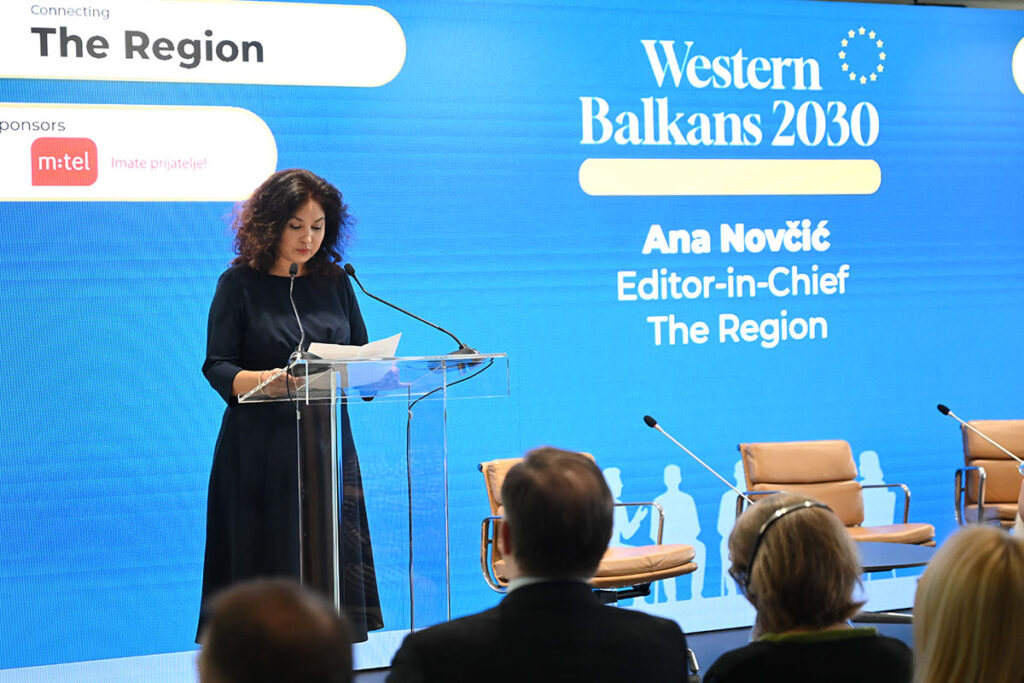
The event was organised with the support of the European Investment Bank (EIB) and UNOPS, sponsored by MTEL, EPS, and SME HUB, and held in partnership with the Japanese Business Alliance, the Slovenian Business Club, and the Nordic Business Alliance, with Carlsberg sponsoring the networking lunch.
Opening Session: A Common Vision for 2030
Opening the event, The Region’s Editor-in-Chief Ana Novčić emphasised the ambition to turn the conference into an annual forum where discussions translate into partnerships and measurable impact.
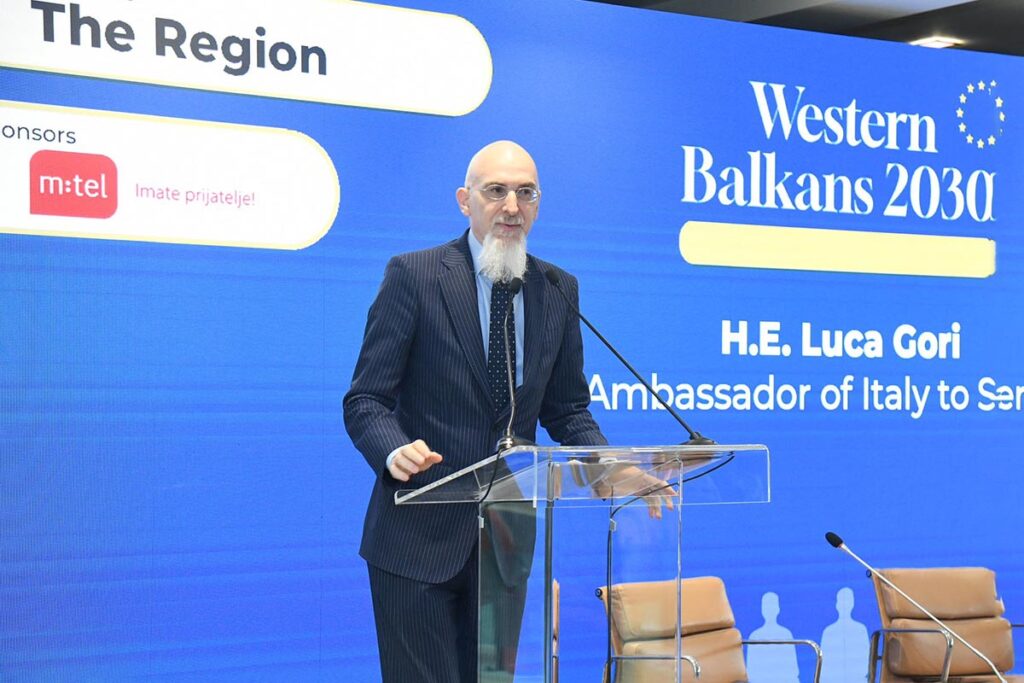
Italy’s Ambassador to Serbia, Luca Gori, noted that understanding Europe’s new geopolitical context has become essential for EU enlargement, urging a more flexible methodology and encouraging Serbia to match the pace of Montenegro and Albania.
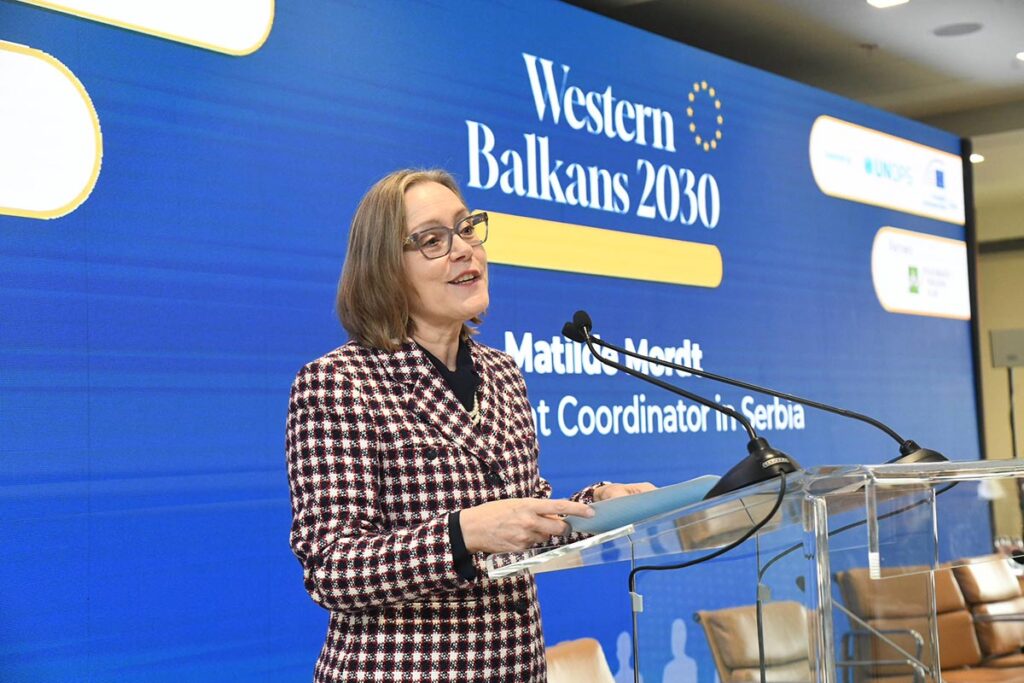
UN Resident Coordinator Matilde Mordt highlighted cross-border energy lines, transport systems, digital innovation hubs and investment in people as key pillars of future integration. “Infrastructure is the foundation,” she said, “but human capital and innovation are what make integration meaningful.”
EU Accession Panel: Reforms, Investment and New Governance Standards
The first panel, “Regional Integration & EU Accession – The Investment Case for the Western Balkans”, moderated by Aleksandar Andrija Pejović, brought together Tim Lardner of UNOPS, Damien Sorrell of the EIB, Biljana Braithwaite of Sustineri Partners, and Mauro Di Veroli of the EU Delegation to Serbia — each providing a distinct perspective on the region’s EU integration path.
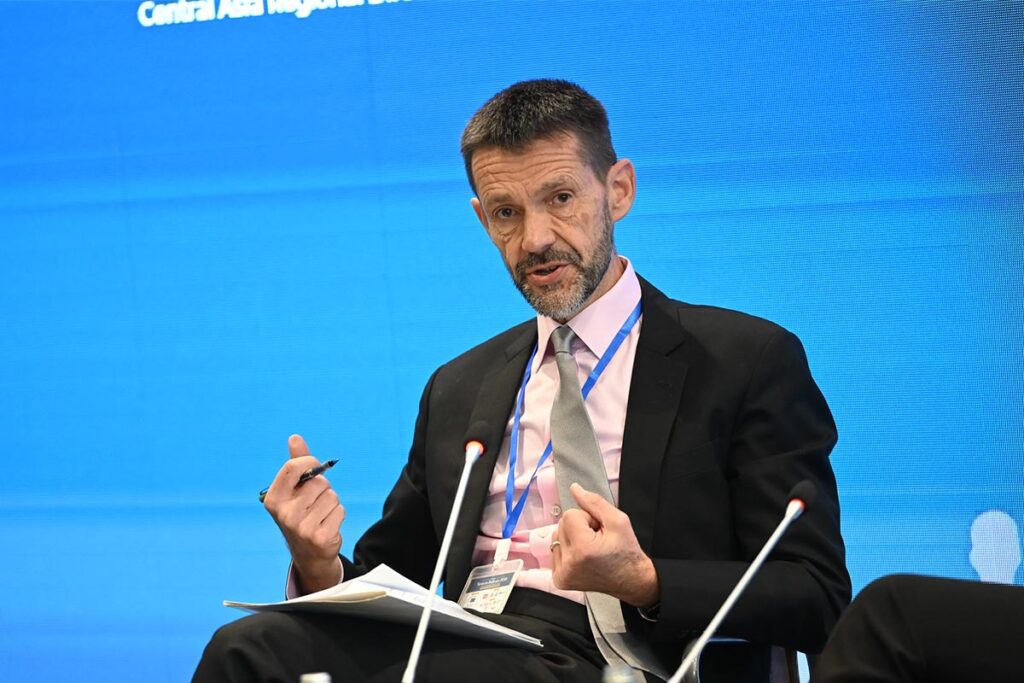
Tim Lardner stressed that accession is fundamentally an economic modernisation process. “EU integration is not only political — every successful reform makes a country more attractive for investment, including in the Western Balkans,” he said. He outlined UNOPS’ extensive work through EU PRO and EU PRO Plus, which coordinated more than 500 grants worth €12.5 million, supported nearly 1,700 companies, strengthened social welfare and local competitiveness, and worked with municipalities on developing and equipping business zones. “The key is working with local partners, building their capacities and ensuring progress within the systems we have, so that the benefits shape the future we want to live in,” he added.
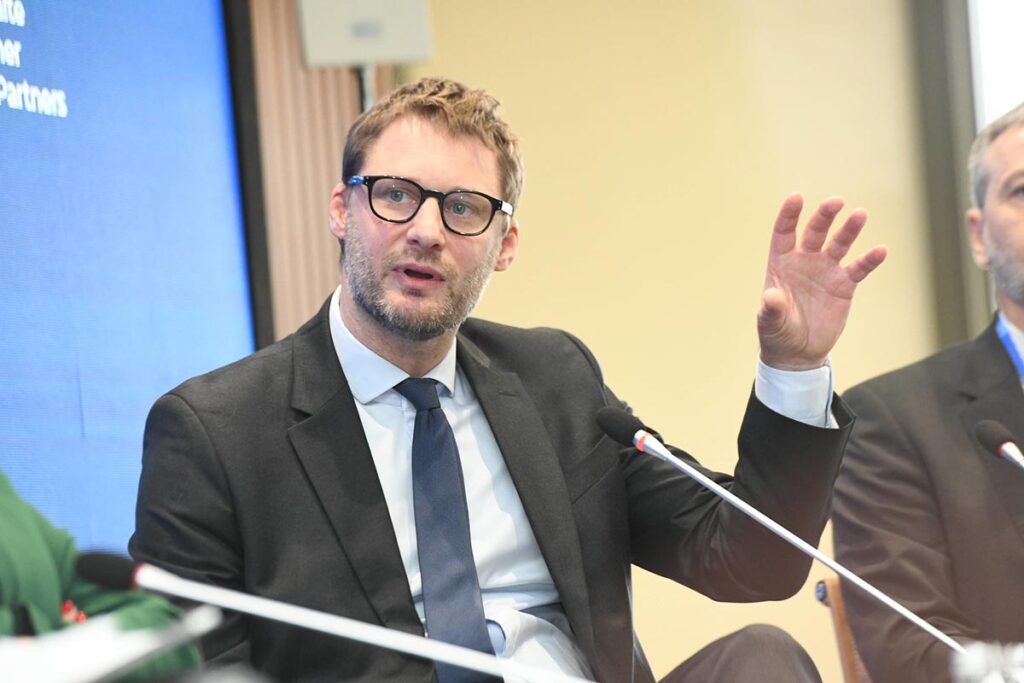
EIB’s Damien Sorrell stressed the importance of green transition and connectivity, calling for accelerated implementation. “There are delays. We need faster execution to show people results.”
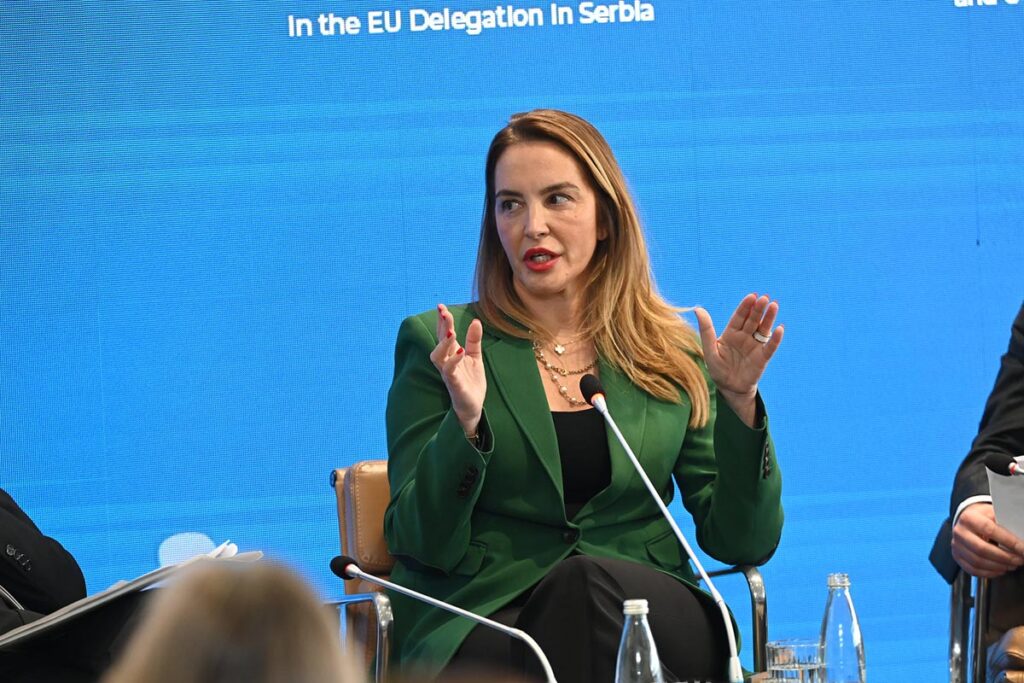
Sustineri Partners’ Biljana Braithwaite highlighted the rising importance of ESG, governance and transparency. “Investors everywhere ask the same questions: is the project sustainable, transparent, responsibly managed? This region is still not fully ready.”
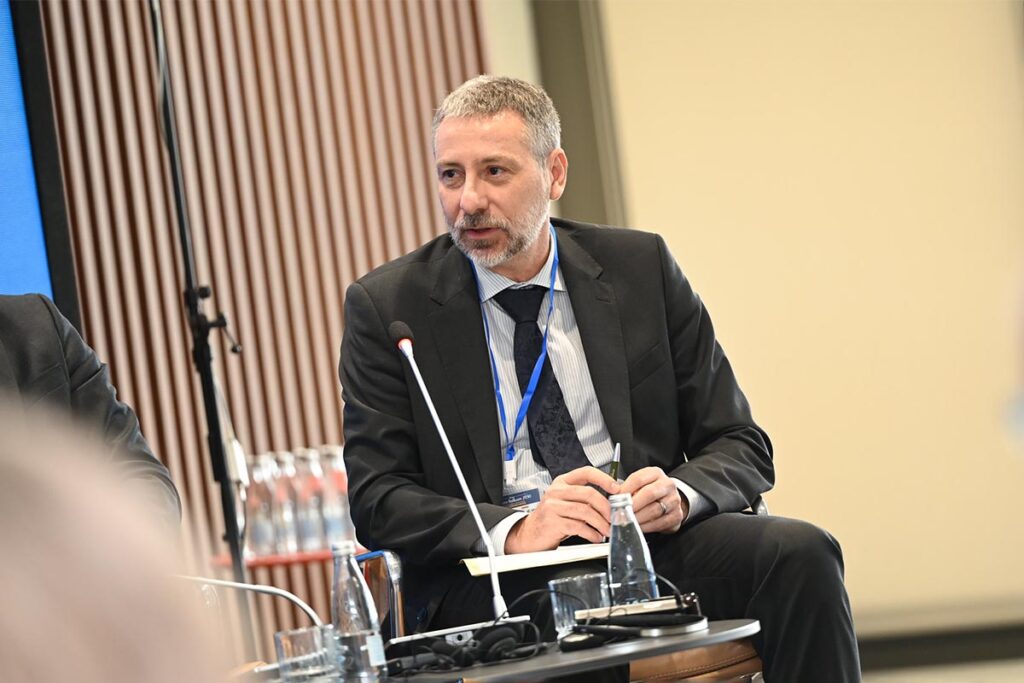
Mauro Di Veroli underlined that economic strength is the backbone of accession. “Candidate countries must be ready to join the single market. Private investment is essential,” he said, noting that Serbia could unlock €1.6 billion in additional EU funds by meeting reform benchmarks.
Fireside Chat: Japan’s Long-Term Commitment
A dedicated Fireside Chat “Growth Without Borders: Japan’s Innovative Approach to the Western Balkans” featured Japan’s Ambassador to Serbia Akira Imamura in conversation with Oliver Lepori, Executive Director of the Japanese Business Alliance.
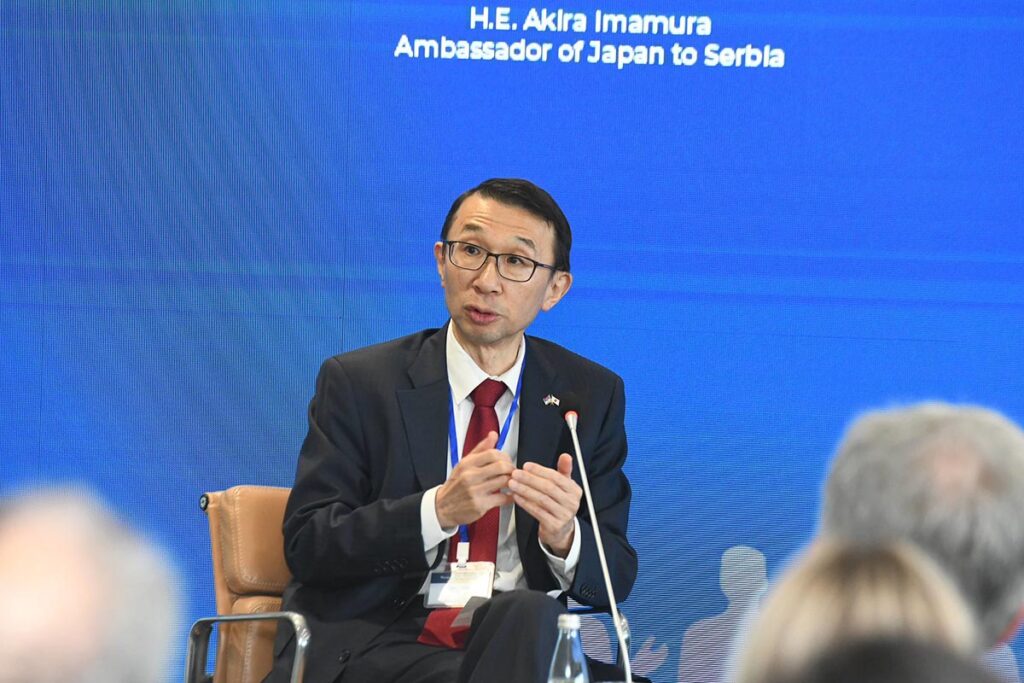
Ambassador Imamura underlined that Serbia is a key stabilising factor in the region. “European stability is in Japan’s national interest,” he said. He highlighted a declaration signed during Serbia’s September visit to Tokyo, expected to come into force next year. “It will send a strong signal to Japanese investors.”
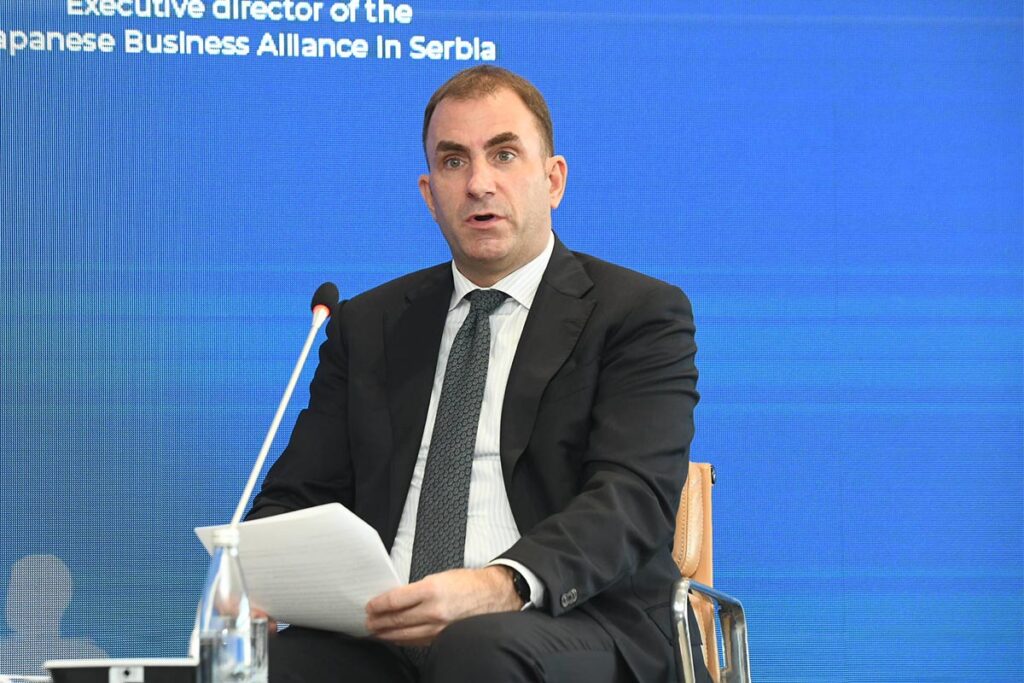
Lepori emphasised Japan’s long-term approach. “Japan seeks stable, long-duration partnerships — with companies and institutions ready to think in decades, not quarters,” he said.
Green Transition Panel: Decarbonisation with Realism
The second panel, “Green Transition – From Commitments to Action”, moderated by Branislava Jovičić, brought together UK Ambassador Edward Ferguson, Arslan Umut Ergezer of the Regional Cooperation Council, Maja Vukadinović from Serbia’s Ministry of Mining and Energy, and EPS General Manager Dušan Živković.
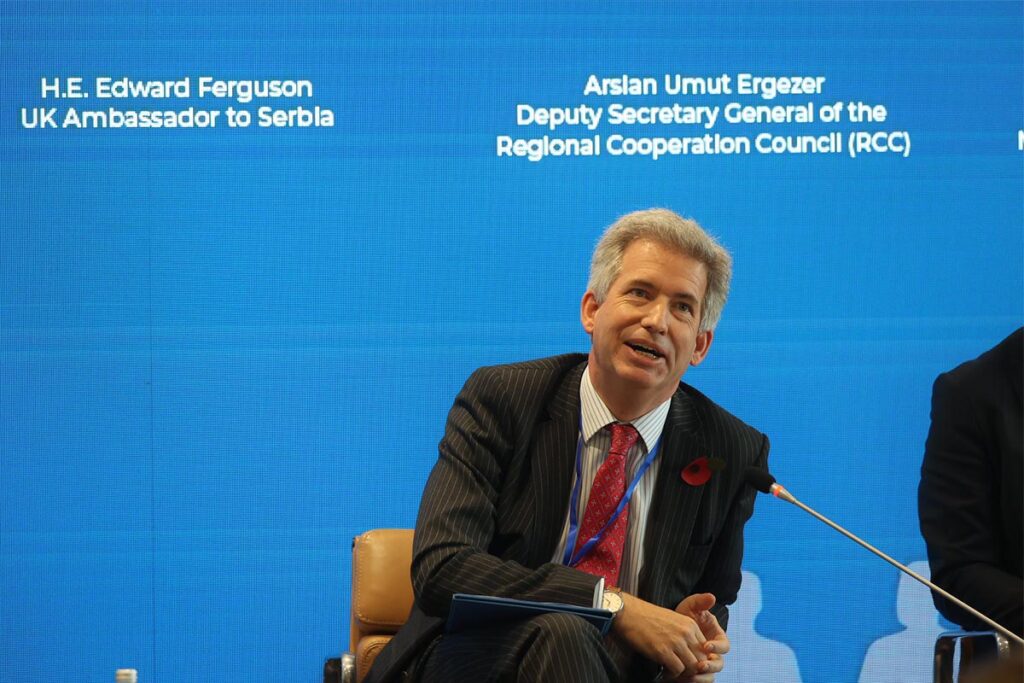
Ambassador Edward Ferguson shared the UK’s experience eliminating coal and increasing renewables, stressing that regulatory simplification was essential: “We streamlined our system to make projects move faster. Speed matters.”
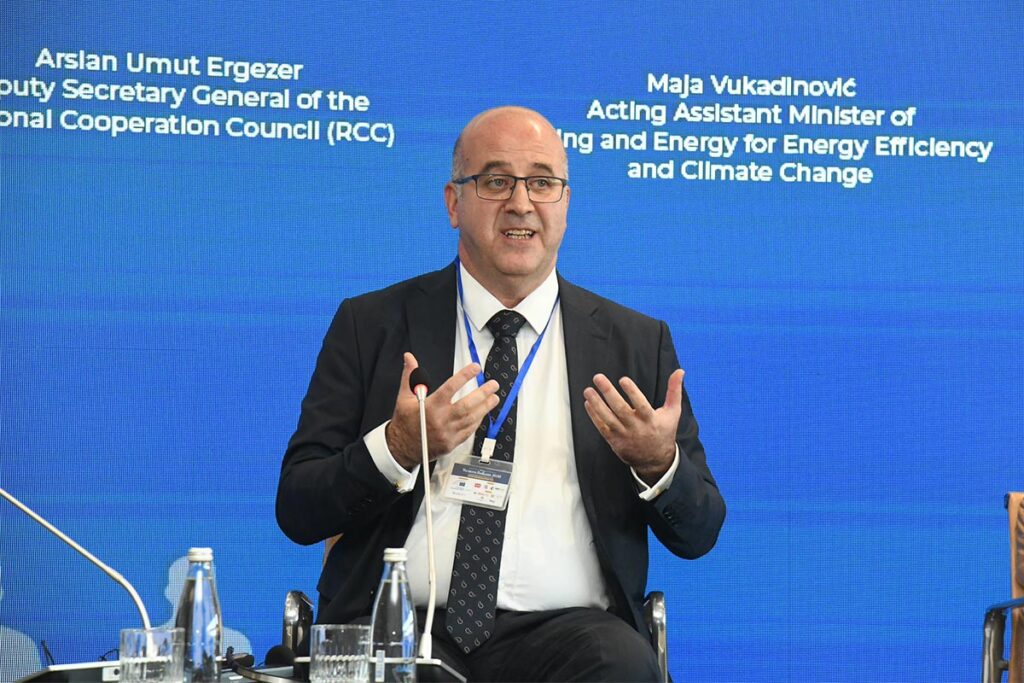
RCC’s Arslan Umut Ergezer presented striking figures: “The Western Balkans will need around €40 billion for climate adaptation. Donors cannot do this alone — private capital must be central.”
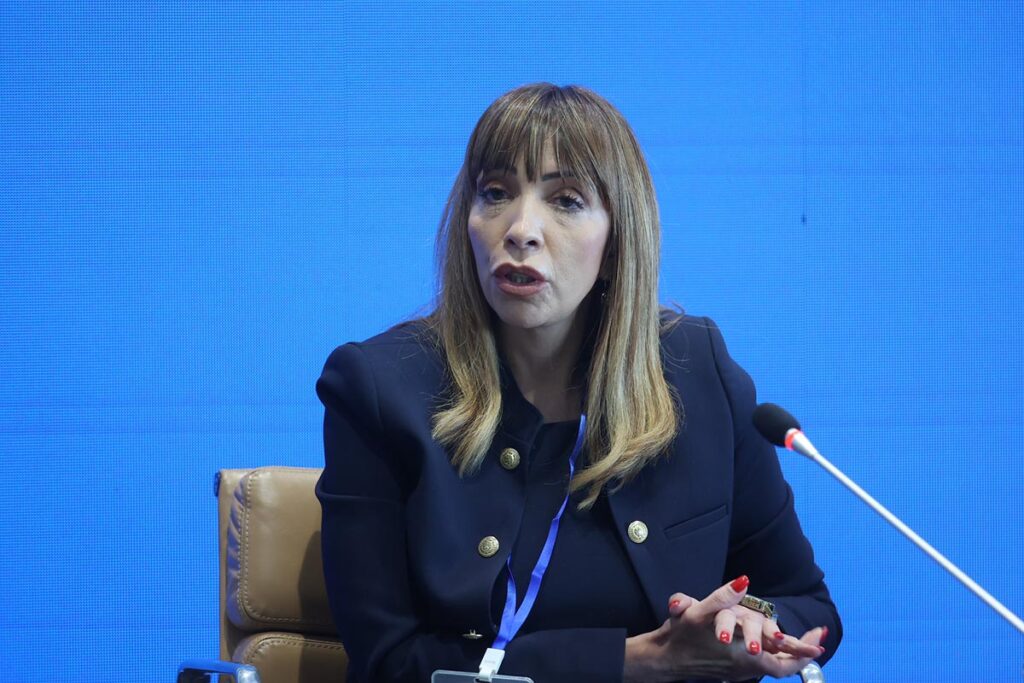
Assistant Minister Maja Vukadinović explained that Serbia, which still depends heavily on coal, must transition gradually to protect energy security. She outlined major projects such as a 1 GW solar-battery facility, hydrogen storage by 2030, and a large solar-thermal plant in Novi Sad.
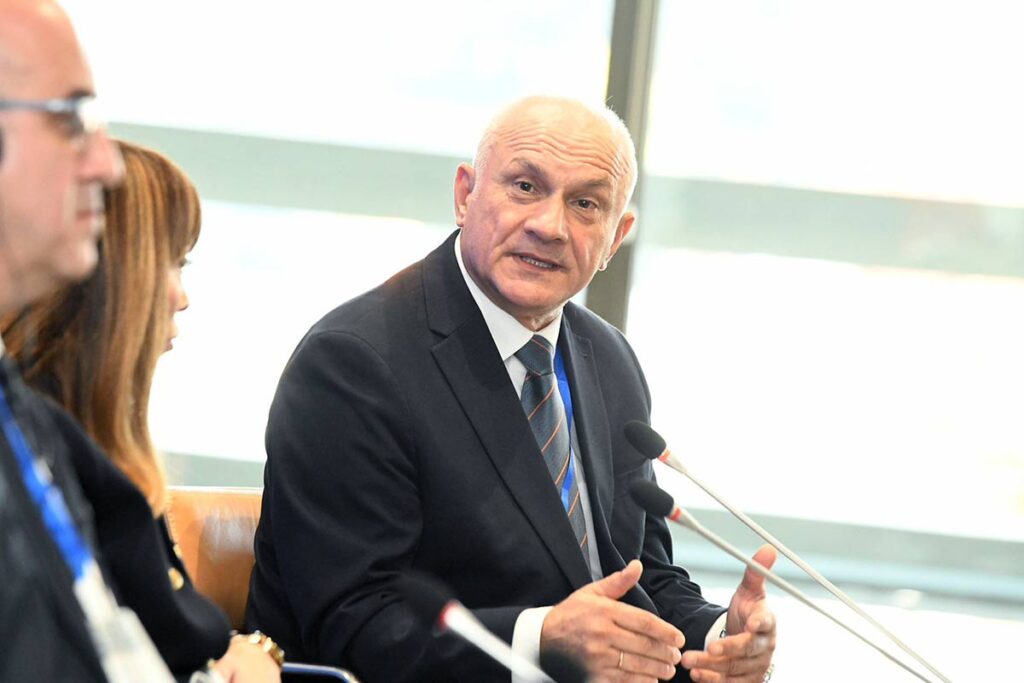
EPS CEO Dušan Živković reinforced that stability is non-negotiable. “We must maintain reliable supply while facing geopolitical, technological and financial pressures. Transition must be gradual and carefully managed.”
Digitalisation Panel: Smart Systems and Inclusive Innovation
The final panel, “Digitalisation & Modernisation – Smart Economies, Stronger Region”, moderated by Aleksandar Mastilović, brought together North Macedonia’s Deputy Prime Minister Ivan Stoilković, H.E. Niklas Lindqvist, Ambassador of Finland to Serbia, Montenegro and North Macedonia, NALED’s Jelena Bojović, MTEL Montenegro’s Zoran Milovanović, Swiss-Serbian SME Hub Director Aleksandar Goračinov, and Dražen Višnjić from the Agency for ICT of Republika Srpska.

Stoilković emphasised that digitalisation must go hand in hand with regional connectivity. “Regional collaboration is the foundation of European integration,” he said.
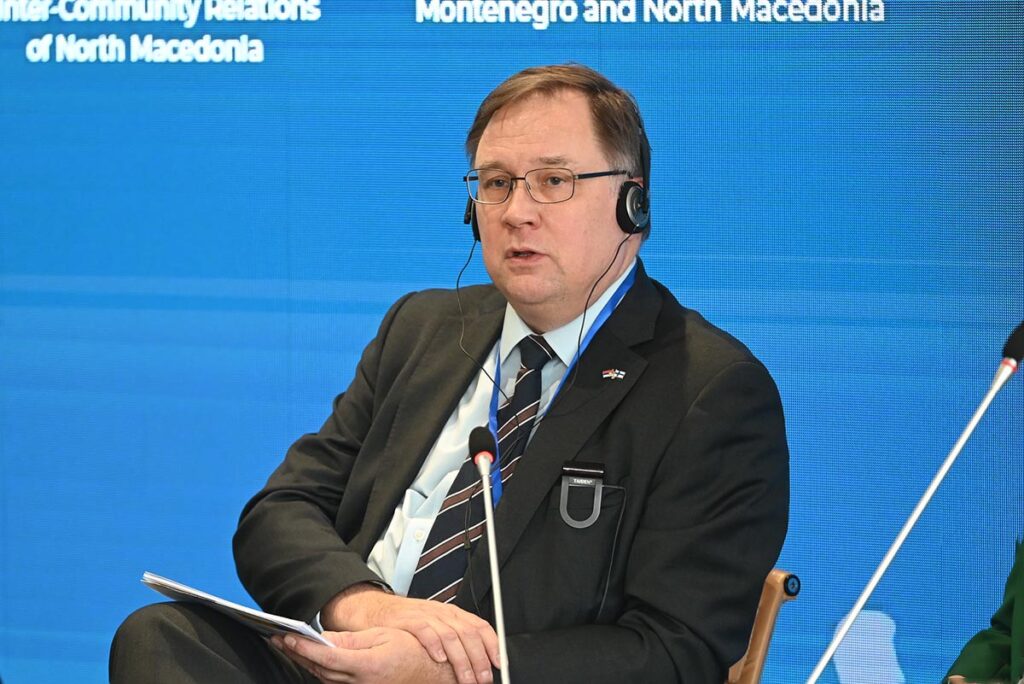
Ambassador Niklas Lindqvist presented Finland’s leadership in digital inclusion. “Eighty-five percent of Finns use digital services. Inclusivity must remain at the center.”
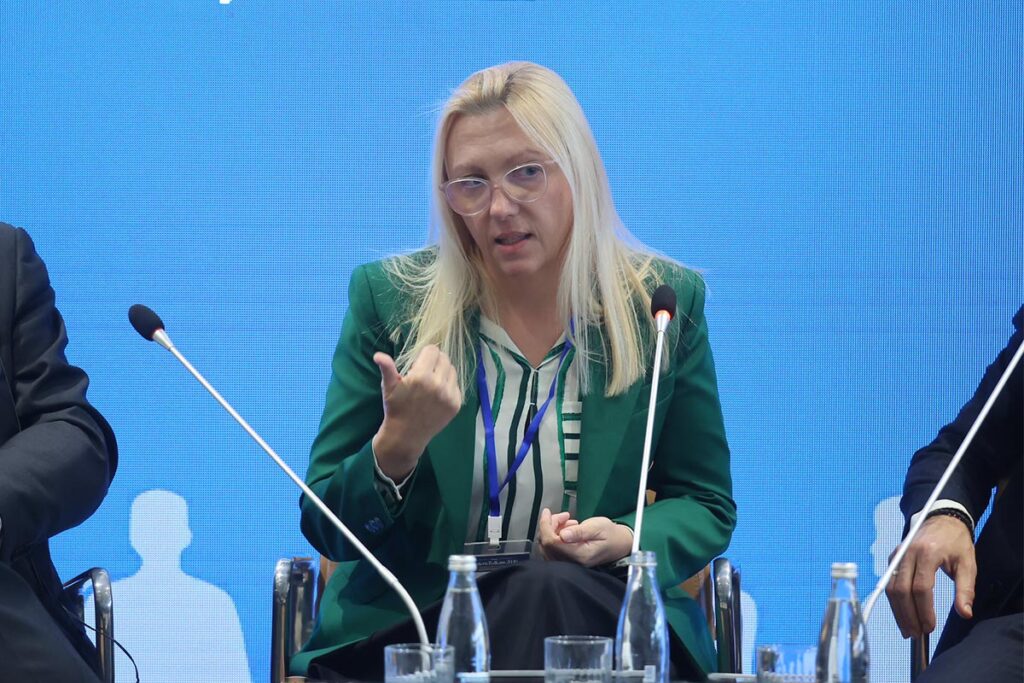
Jelena Bojović detailed Serbia’s reform of seasonal labour registration — the only mobile-based system of its kind in the region — now mirrored in four neighbouring economies.
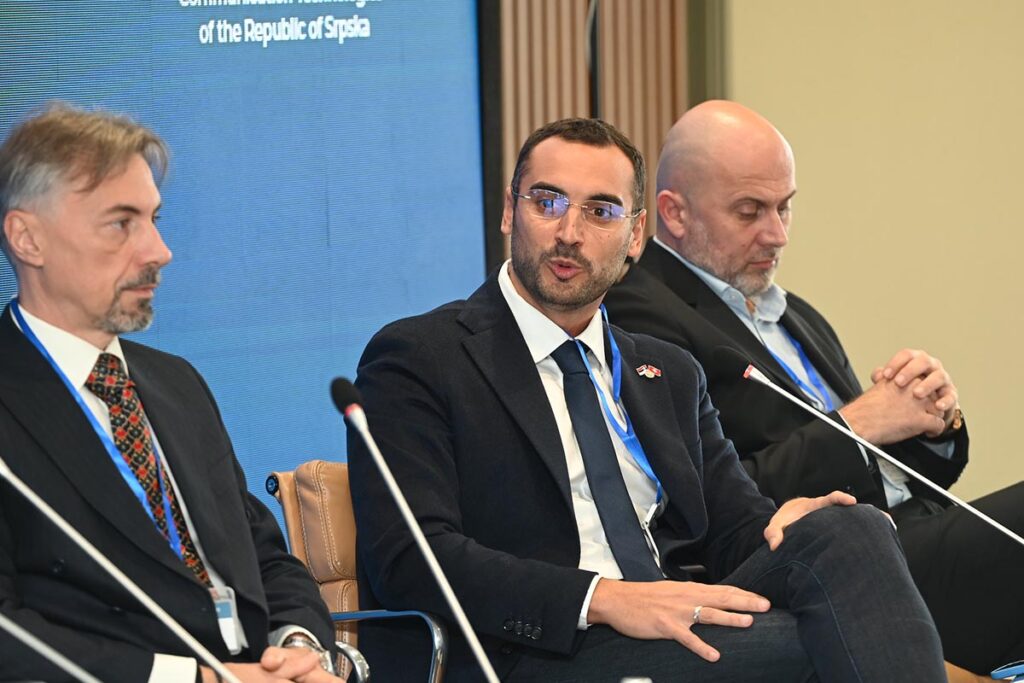
Zoran Milovanović stressed that education must keep pace with rapid technological change, while Aleksandar Goračinov noted that transformation begins with a change of business mindset, not software. Dražen Višnjić presented a long-term vision focused on AI, robotics, advanced electronics and energy innovation.
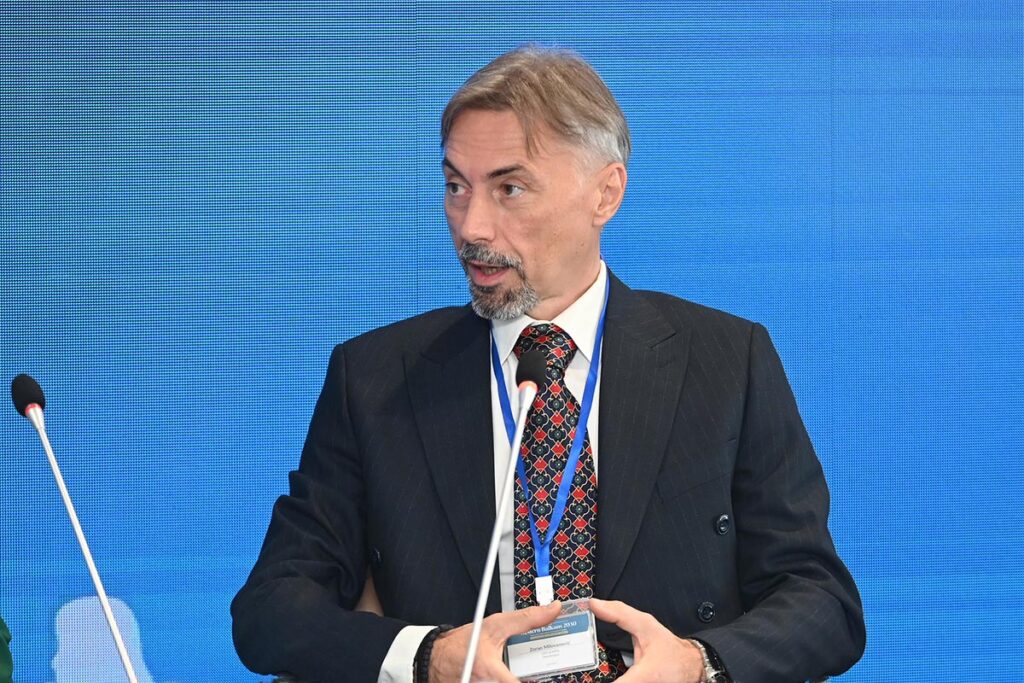
A Roadmap for 2030
Across all panels, speakers converged around a common message: the Western Balkans can move faster — with stronger institutions, more cooperation, more investment in people, and long-term commitment to reform.
The scale of attendance, the diversity of institutions represented and the depth of discussion all underscored a clear signal: the region is ready to shape its future together.
Photos from the Western Balkans 2030 conference are available here.
Photo: Beta photo/Milan Ilic/Zoran Petrovic/Dario Kostadinovic

